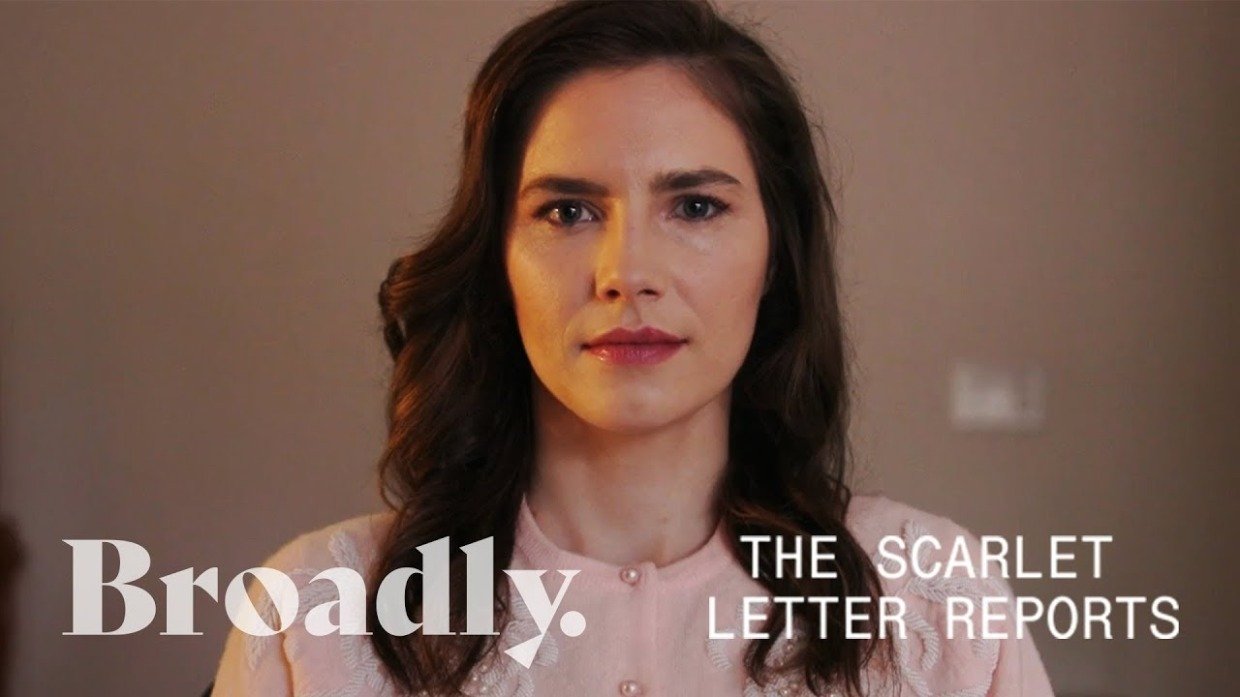Amanda Knox: Innocent as Charged
I’m definitely late to enter this topic of discussion even though I had seen a lot about Amanda Knox and the trials two, three years ago when the controversy was much talked about. I was drawn once more due to Vice Media’s Broadly series “The Scarlet Letter Reports” that had infamously decided to make Amanda Knox its host. First watching the episode with Mischa Barton (since I knew her as an actress) I was immediately attracted to Knox’s powerful engagement with her interviewee, drawing on her own experience as one labeled with the scarlet letter, so to say.
Then I embarked on a journey of discovery, watching numerous videos and the Netflix documentary on Knox’s experience being accused of murdering her roommate Meredith Kercher in Perugia, Italy.
I saw three different perspectives, upon analyzing people’s reactions to the crime and its circumstances (I hate reducing things to a racial context, but this is what I honestly saw): the Americans who vehemently defended Knox, the British who attempted to find any gaps in the investigation, Knox’s character and the Italian legal system to ensure that Kercher’s murderer was brought to justice, and the Italians who were caught up in this unexpected international scandal, manipulating it for their own gain and continuously trying to hide the flaws of their criminal justice system. Well, I do not belong to any of these groups and I look at it from the perspective of a Sri Lankan student of law interested in how the system treats especially female victims and perpetrators. I am not afraid to say that I stand by Knox.
Courtesy of YouTube/ Vice Media
I do not want to obscure the ordeal that Kercher went through, nor her character as a victim of murder, which a lot of people seem to be doing. She was brutally assaulted and murdered in an unknown city among persons whom she had barely made friends with. However, I must speak about how Knox was treated in the controversial trial. I was a student spending a semester abroad, once, in 2017. I was fortunate in that I had two other students from my university accompanying me and staying at the same dormitory, but still we had ups and downs in our relationship. I was particularly vulnerable as I was homesick and was having trouble making friends in my classes. I do not equate myself with Knox as she appears to be quite outgoing and adventurous, both of which I am not. Nevertheless, what people don’t seem to be addressing is her relationship with Kercher. Knox and Kercher knew each other only for a few weeks. It is normal that her immediate reaction was “it could have been me”, instead of bouts of grief for her friend of a few weeks. In a strange university town where they barely spoke the language of the natives, they were forced to be each other’s acquaintances, and Knox must have obviously felt overwhelmed by the whole situation. The kisses with Sollecito and ‘cartwheels’ in the police station were to relieve herself of that emotional burden. I would have behaved the same way (probably no cartwheels, though).
The media frenzy over the character of Knox is of absolute importance here. In the documentary, it is quite evident that her complicity in the crime was not built on actual evidence but on an analysis of her behavior. While I believe psychological reactions to situations of violence are of utmost significance, I do not believe digging up dirt on someone’s past and labeling them as someone with “loose morals” or basically with the ‘scarlet letter’ are acceptable. While behavioral analysis has helped forensic science and law, this case is an exception because the legal system of Italy was obviously thriving on the international attention it was receiving and wanted to explicate Knox in the murder, somehow, even though none of her DNA was found on the crime scene (yes I know about the knife but the evidence was inconclusive). Looking at Knox now, I believe she has matured a lot (who wouldn’t?) after the emotional ordeal she went through, and I’m glad she is advocating for the wrongly accused. No legal justice system is perfect. All of them are flawed, even those in the so-called ‘developed’ countries. The law and the lawmakers have a deep philosophical problem to solve: how do we serve justice to individuals while ensuring safety and fairness for an entire community? It is not an easy problem to solve, and every system does it differently. Knox, Kercher and Sollecito were unfortunately, victims of the consequences of Italy’s attempt at solving it.


